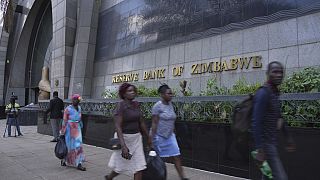Zimbabwe
Zimbabwe has begun redistributing unused land that was given to black farmers during President Robert Mugabe's bloody land reforms in the early 2000s, Zimbabwean Agriculture minister Anxious Masuka told on Wednesday.
"Those who own more than one farm, or whose farms are abandoned, will face expropriation," he said. "The lands will be redistributed to aspiring farmers, who are on a waiting list established since the last reforms," he added.
"99% of the land has already been allocated", and the land distributed to farmers on the waiting list "is being taken from blacks, to be allocated to blacks." He added the government would not repossess productive farms.
In 2000, late president Robert Mugabe had white farmers forcibly expropriated from the country in order to reallocate their land to black farmers. The move was intended to correct inequalities resulting from British colonisation, but in fact, those close to the government benefited greatly from this redistribution.
The new owners, poorly trained and ill-equipped, had left large tracts of arable land unused and the country now suffers from chronic food shortages.
After the fall of Robert Mugabe in 2017, his successor, Emmerson Mnangagwa promised to heal the wounds of the land reforms and even to compensate expropriated farmers.
Some white farmers have already been allowed to reclaim land through local partnerships, Masuka said. "There are no specific criteria," Vangelis Haritatos, deputy agriculture minister, told AFP. "What we want is a system that is fair to the greatest number of people."
"We want to achieve food self-sufficiency," Haritatos said. According to the Famine Early Warning Network, about 10 million Zimbabweans, or two-thirds of the population, are at risk of hunger after a disappointing rainy season. Zimbabwe is heavily dependent on donors for its food supplies.




![Zimbabwe marks 40 years of Independence [Special Report]](https://static.euronews.com/articles/1080613/320x180_1080613.jpg)








02:40
Climate-smart seeds cultivate hope for Kenya's agricultural future
02:05
Over 2 billion people lack access to safe drinking water- UN report
01:30
Zimbabwean prophet charged in court over child labor
01:02
Pics of the day: March 14, 2024
00:53
US imposes sanctions on Zimbabwe's president, first lady and 9 top officials
01:35
Funeral of Zimbabwe opposition activist takes place two years after her murder